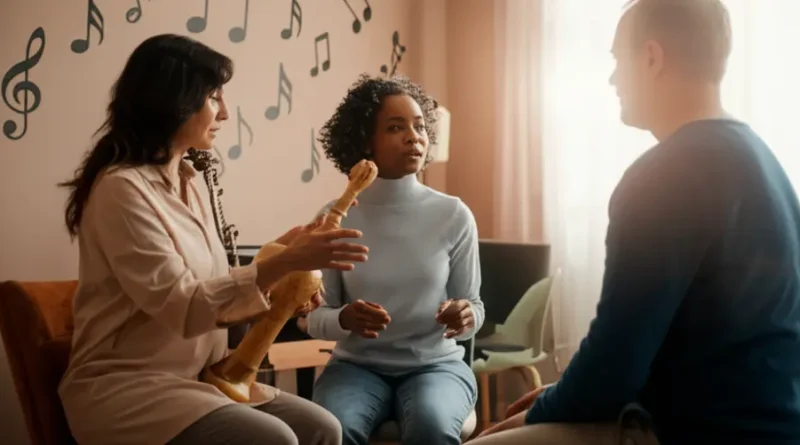The Role of Music Therapy in Emotional Well-Being
Music has long been revered for its ability to evoke emotions, tell stories, and bring people together. However, its therapeutic potential is only recently gaining the recognition it truly deserves. Enter music therapy, a clinical and evidence-based use of music interventions to accomplish individualized goals within a therapeutic relationship. With a growing body of research supporting its efficacy, music therapy is proving to be an invaluable tool in promoting emotional well-being.
Music therapy encompasses a broad range of activities, including listening to music, songwriting, performing, and even analyzing lyrics. It can be delivered in individual or group settings, depending on the specific needs and preferences of the client. In various therapeutic contexts, music therapy has shown efficacy in reducing symptoms of anxiety and depression, improving self-esteem, and enhancing social skills.
One of the primary ways music therapy aids emotional well-being is through its power to regulate emotions. Listening to a favorite song or playing a musical instrument can help individuals express feelings they may otherwise find difficult to articulate. For many, music serves as a bridge to understanding their emotional landscape. Different genres can evoke various emotions—whether it’s the soothing melody of classical music to promote relaxation or the upbeat tempo of pop music to inspire joy and motivation.
This emotional regulation aspect of music therapy is particularly vital for those dealing with trauma. Traumatic experiences can elicit overwhelming feelings of fear, anger, or sadness that are challenging to process. Music therapists often use improvisation or songwriting exercises to help clients explore and express these complex emotions safely. Research has shown that participants who engage in music therapy report a significant decrease in symptoms of PTSD and anxiety, along with improved overall emotional health.
Furthermore, the social component of music therapy can enrich emotional well-being. Group music therapy sessions encourage participants to collaborate, communicate, and bond through shared musical experiences. This sense of community can combat loneliness and foster social connections, which are essential for emotional health. For many, the group dynamic can lead to increased confidence, improved communication skills, and a support system that extends beyond therapy sessions.
Moreover, music therapy can be a powerful tool for individuals with cognitive impairments, such as those living with dementia or autism. Music often taps into preserved memories and can evoke emotions associated with those memories, providing a comforting and familiar experience. In many cases, individuals become more engaged and communicative through music, which can significantly enhance their overall quality of life.
Another fascinating aspect of music therapy lies in its ability to bridge cultural and generational gaps. Music is a universal language and can serve as a medium for dialogue and connection among individuals of diverse backgrounds. Music therapists often incorporate culturally relevant music into sessions, allowing clients to engage with their cultural identities and explore their emotional landscapes. This personalization enhances the effectiveness of therapeutic interventions and fosters a sense of belonging and recognition.
For those looking to explore music therapy, it’s essential to work with a qualified music therapist, someone who is trained in both music and therapeutic techniques. Sessions are tailored to meet individual needs, and sometimes a combination of modalities may be employed—such as combining music therapy with talk therapy or art therapy for a more holistic approach.
In a world that often feels chaotic and overwhelming, embracing the healing power of music can be a transformative experience. Whether one chooses to dive deep into music therapy or simply incorporates music into their day-to-day life, the journey toward emotional well-being can be enriched by this creative outlet. From creating soothing playlists to attending therapy sessions, the possibilities are as vast as the world of music itself. So why not take a step towards nurturing your emotional health through music? It may just be the tune your heart has been waiting for.

